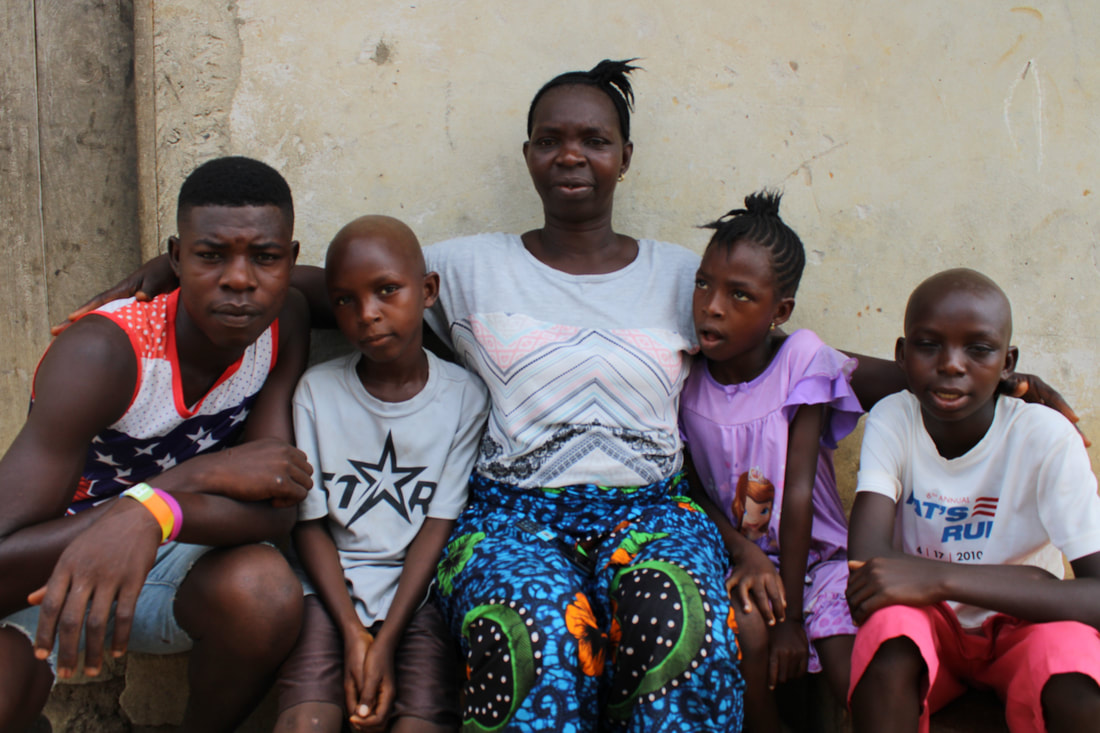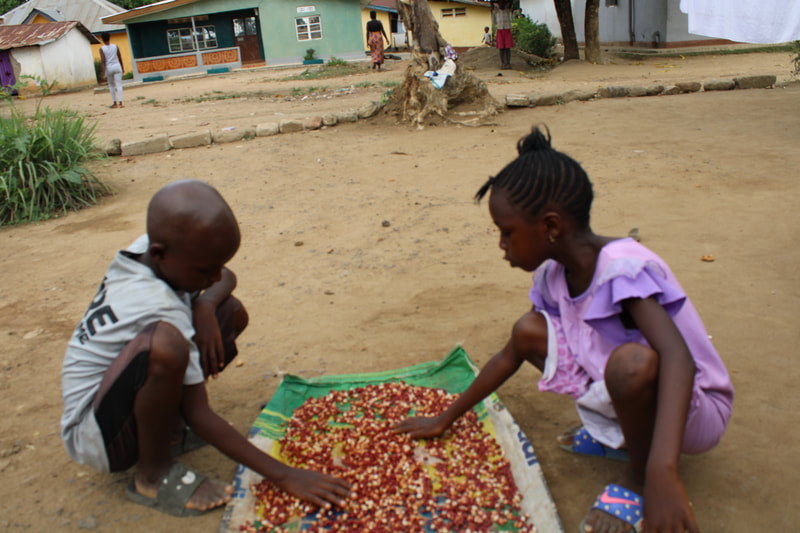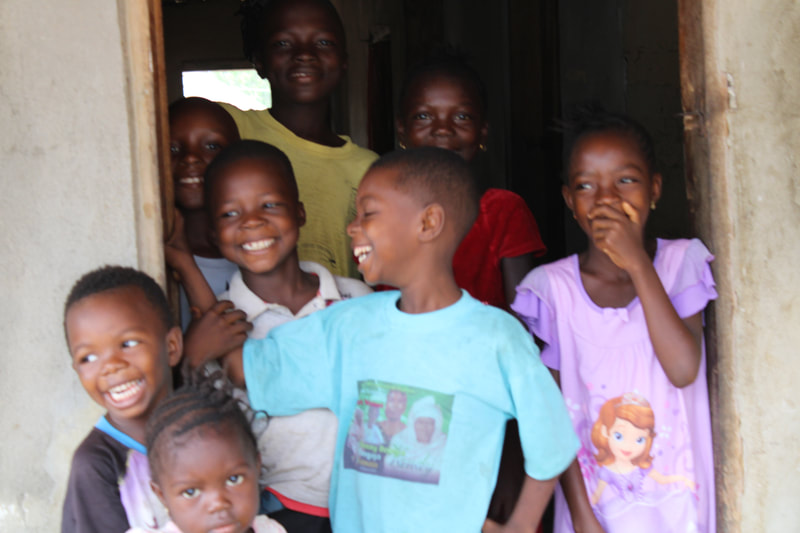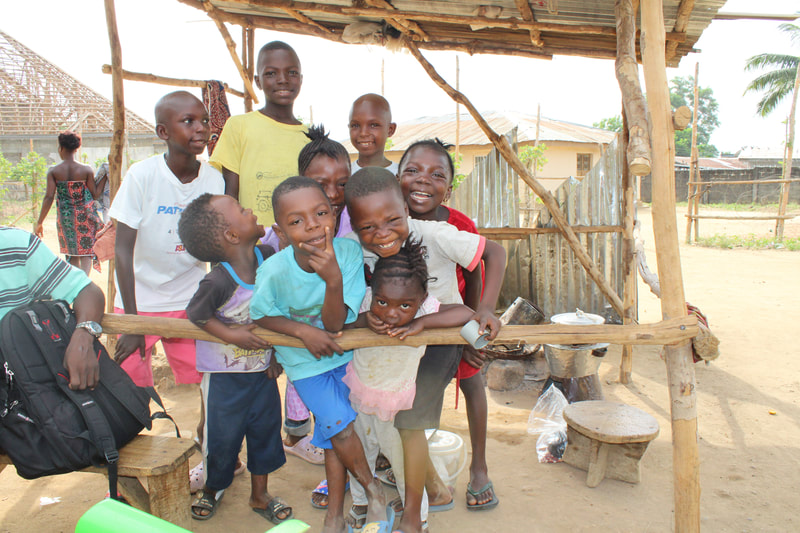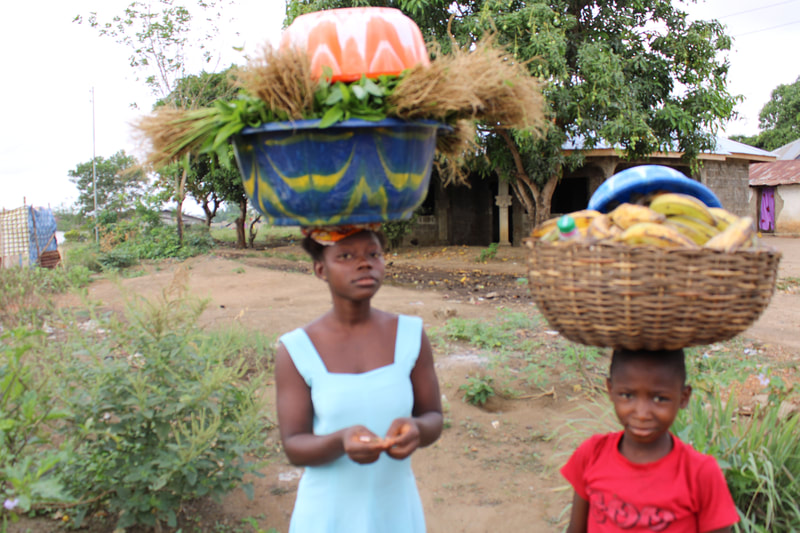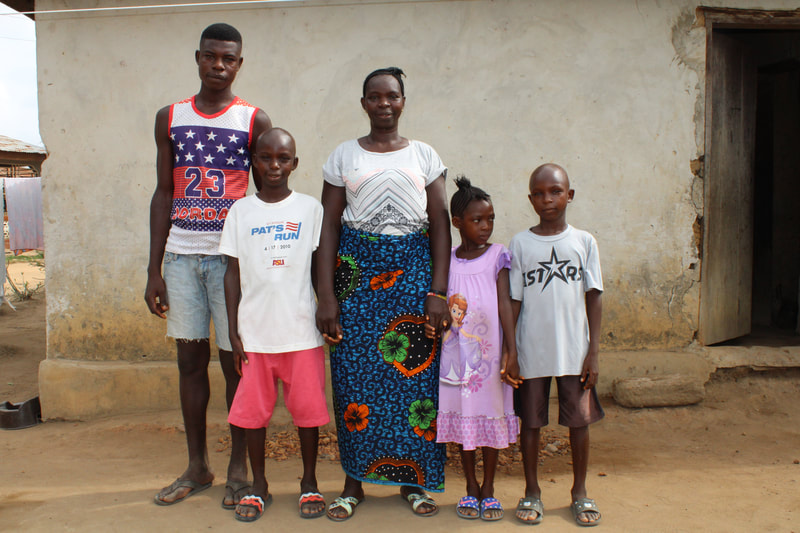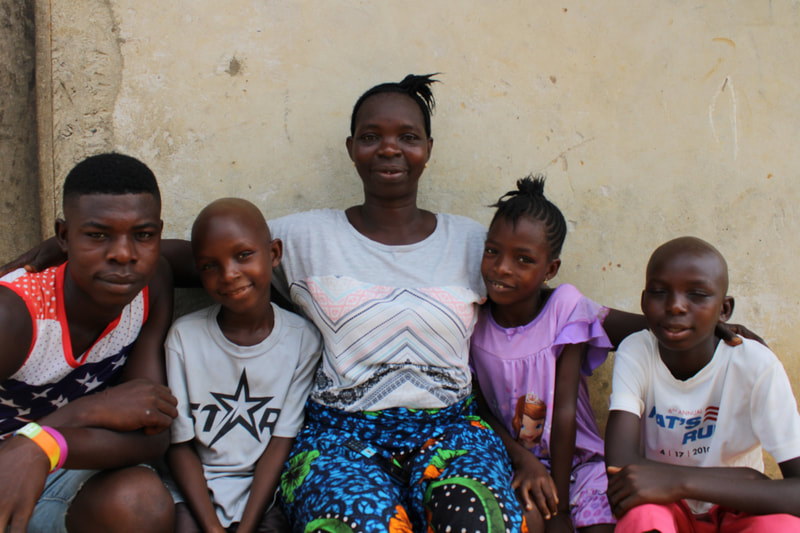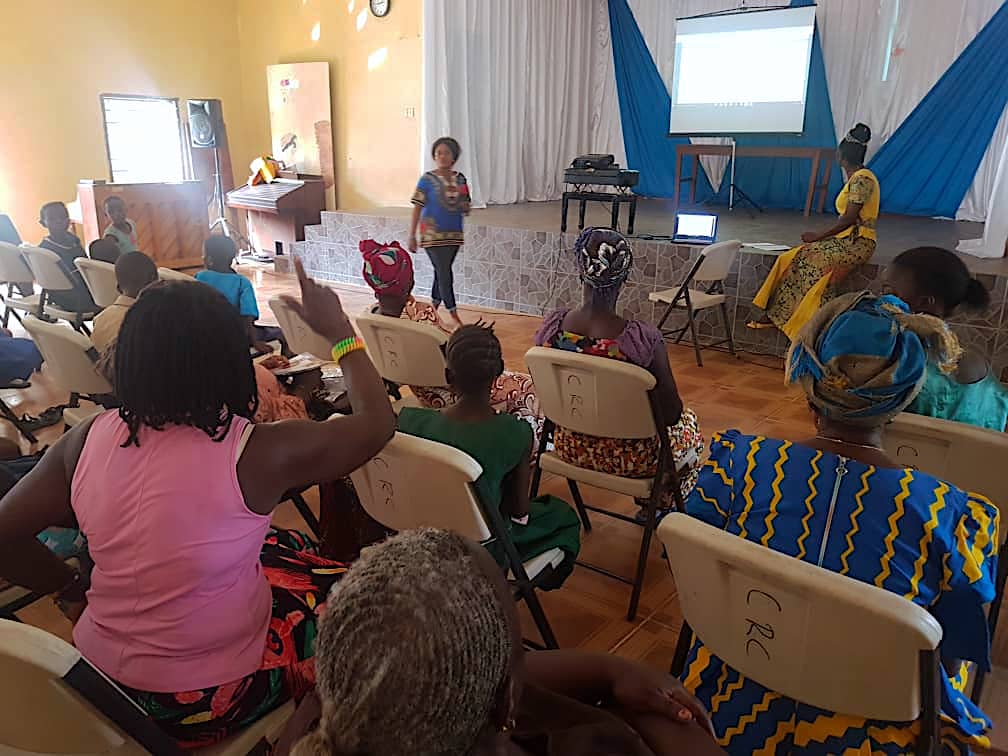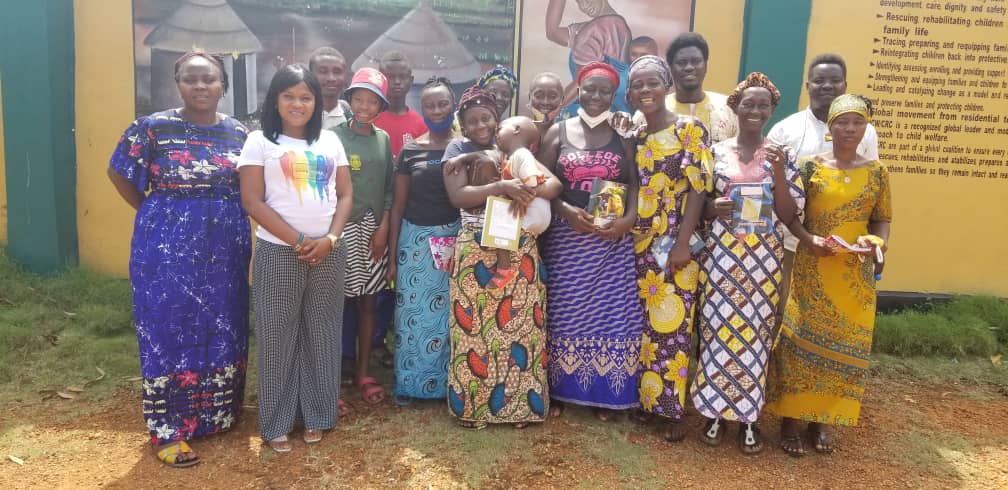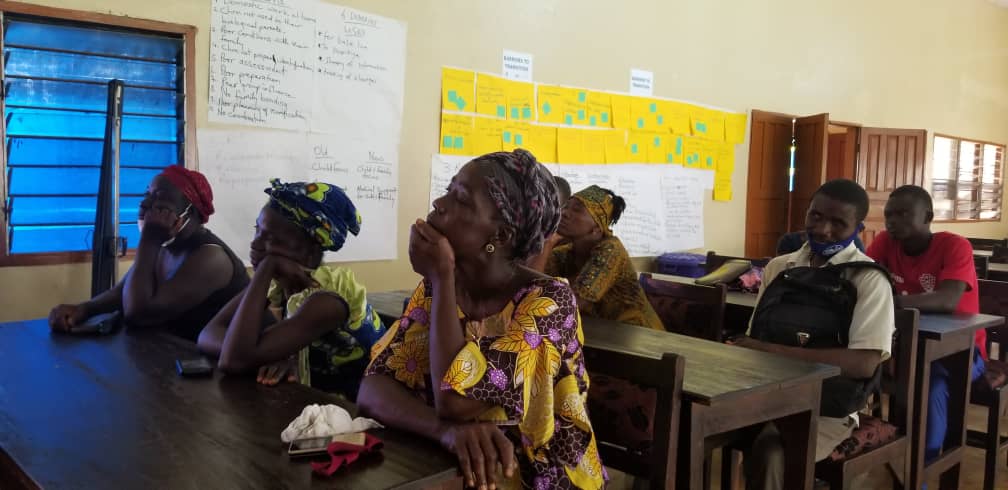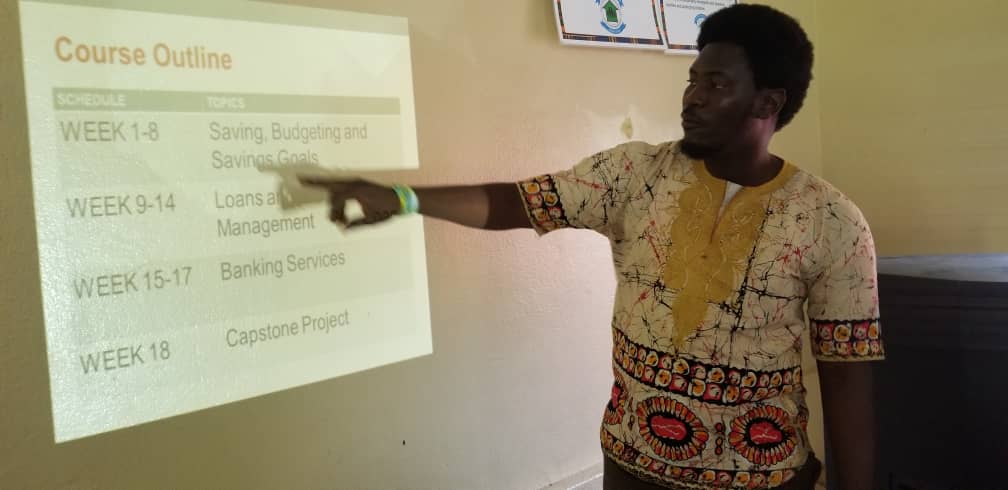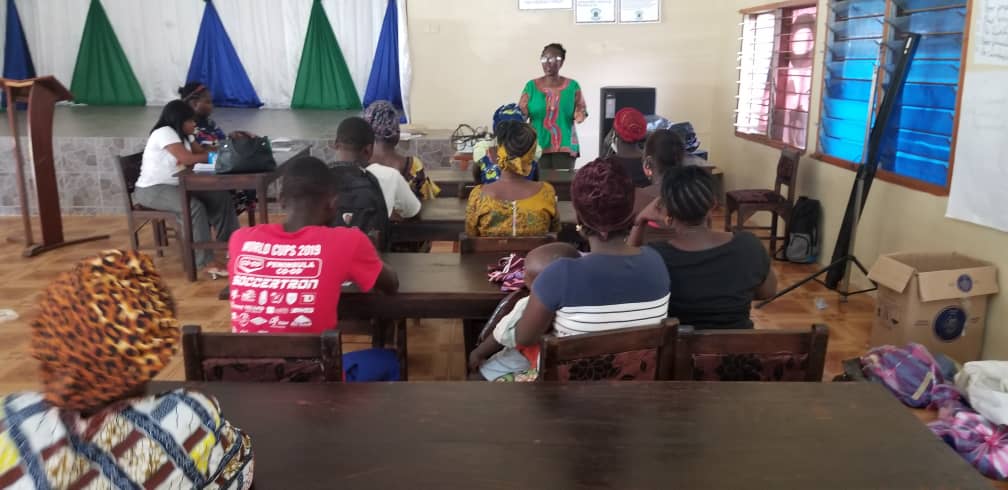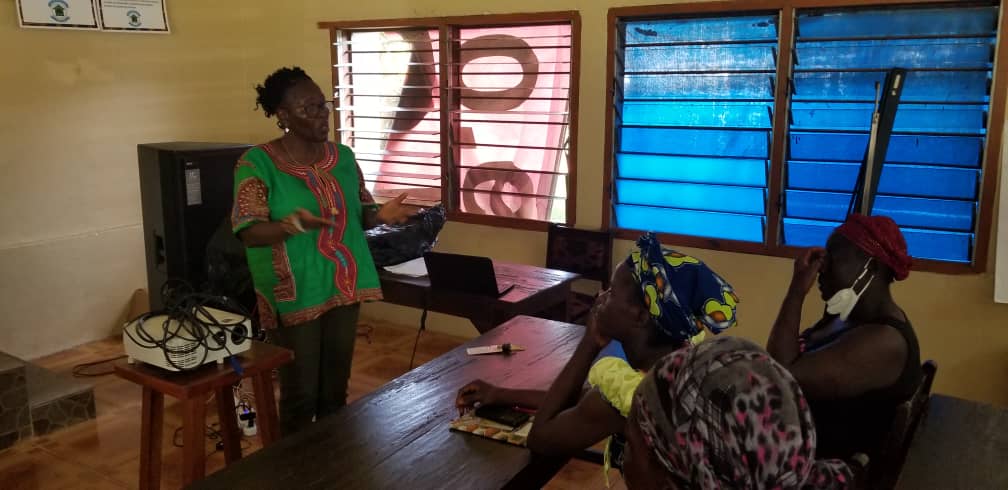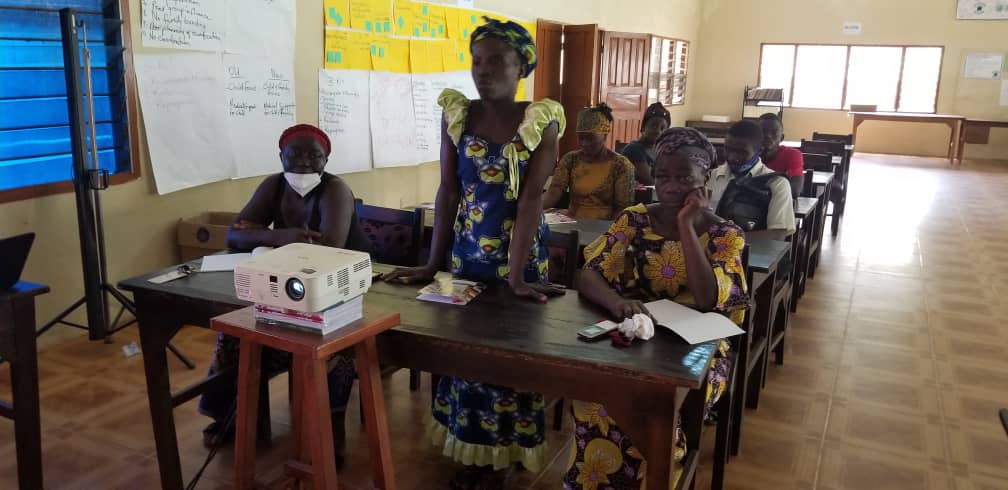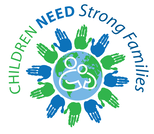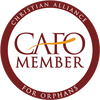|
By Mohamed Nabieu, HCW Director of Mission Advancement and Partnership The Mattia children’s parents died shortly before the Ebola outbreak, from the type of chronic illnesses that take the lives of so many Sierra Leoneans. Left alone in a crumbling and frequently flooded mud hut, the pitiful condition of the four children captured the sympathy of a caring neighbor, who referred their case to the Child Reintegration Centre. The CRC did an assessment including family tracing, and found out that the children’s auntie Monjama was living in a nearby village. With her own children grown and married, Monjama was happy to come care for her late sister’s children at the CRC’s request. With the CRC’s help, Monjama moved the family from the dangerously dilapidated house near the swamp into her brother’s house in downtown Bo. “My sister had a dream to move out of that unsafe house, but when she got sick, the little money they were saving for a new place was spent on her medication. But she did not survive and then the husband also died soon after that,” she explains. “The CRC came in at the right time when we needed help desperately. My heart jumped for joy when I heard that CRC was going to help me support my late sister’s children.” Monjama and the children now share a four room dirt floored house with her brother’s family; hardly grand, but much safer and bigger than their previous home. Monjama has one room where she sleeps with three of the children and the older child, Brima sleeps in another room with four of his boy cousins. Before her family's enrollment in the CRC, Monjama found it nearly impossible to make a profit in her work as a petty trader. She was about to give up when the CRC suggested she join the microfinance initiative. “Before taking the CRC microfinance classes, I was really getting frustrated with the lack of saving even when I was pouring in my best efforts. My money was just disappearing into thin air with nothing to account for. It was like I was doing business for nothing. I was about to give up,” she says. “Everything about the microfinance classes is good. But one of the things that has changed my life is the aspect of budgeting and saving. Before, I was not saving any money I was making from my little business. With the microfinance classes, I have learned how to budget, and I have learned to save my profits. I have joined the local savings group called the osusu. This has helped me a lot. Now I have been helping my neighbors with these skills.” Monjama started out selling palm oil and charcoal in the market and neighborhood, but eventually decided to focus on charcoal. As she explains, “With the palm oil business, I had to go out of town to get the gallons of palm oil. And that was keeping me away from having quality time with the children. I was not able to look after them especially after school.” Now she can ply her trade around the neighborhood and stick close to home. “I am home when the children come from school. I feel good when I get to ask them about their day. I also feel good when they get some food at home to eat after school,” she says. Before enrolling in the microfinance program, things were really tough for Monjama. She used to borrow money from her neighbors to put food on the table, driving her deeper and deeper into debt. “I no longer [borrow] money from anybody,” Monjama says. “I feel good that I can take care of my own children without being worried about paying my neighbors back.” Neither Monjama and her husband attended school, nor their parents and grandparents before them. She and her sister wanted to get an education, but their parents could not afford it, and they were sent to work on the family farm at a young age. “Even though we did not get the opportunity to go to school, we are all very convinced that education can help us out of poverty. That is why we are so grateful that through the CRC our children are able to access good education,” she says. Even now, education remains a luxury for more than half of the population in Sierra Leone. Although the government has promised to pay tuition, poor families can’t afford the required uniforms, books, supplies, and additional fees, all of which the CRC provides for the children of enrolled families. The CRC’s goal is not only to send a child to school but to help them stay in school, mentoring and supporting the families through attentive case management. “Before the CRC, the children and I were struggling for everything. They were not even going to school. But through the CRC, they are now going to school. They get all their school supplies. They are doing well, and we are all living well,” Monjama says. Monjama has also attended the CRC’s Attachment Theory and family mentoring classes, to learn how to provide the emotional support her adopted children need to grow up stable and self-sufficient. The children love playing with their friends on weekends and after school. Brima, Aliyya, and Saidu like to play football (soccer) and Emma plays volleyball and stone ball with her friends. They all have big dreams to help others and support their country. “These children know that there is so much need in this country. And they see that every day. We talk about it a lot. They have expressed that they would like to do something about it when they finish their school. And I believe in them, so I am looking forward to that,” Monjama exclaims. “As a mother, it brings me great joy to listen to these children sharing their dreams and goals to help others.” Oldest son Brima wants to be a journalist. “There are journalists in the country who fail to spread the right message. This is because they add to the corruption. I want to be a sober journalist who can spread the right message about stopping corruption,” he says. Saidu’s dream is to become a teacher. “I see many other children on the streets that are not going to school. If not because of the CRC, maybe I would have been like them. If I become a teacher, I can help teach even those children on the streets even if they can’t pay me.” Aliyya wants to become a contractor after he finishes school. “I want to be able to build better houses for even the poor people. People should not be living in the swamp house like where we used to live with our late mom,” he explains. Emma, the youngest, wants to become a nurse “to help treat my people.” The children enjoy doing domestic chores together. “They are really helpful at home. They help do chores around the house, especially on weekends and after school,” Monjama says. Emma loves cooking and helps clean the house. Brima splits wood and bags charcoal for Monjama to sell around the neighborhood. Saidu and Aliyya fetch water for bathing and cooking, and also help tidy the house. Monjama is a woman with a big heart. She has a strong faith. Even though she has experienced great deprivation and suffering, she believes that God is always in control. “When you have nothing, don’t do bad things that betray you and your faith. Just be patient and pray. Be hopeful that God will not let you down,” she says. There are many children like Mattias in Sierra Leone. They have reached the age to start school, and they want to go to school, but they lack the support to make their dreams come true. Some are now youths and young adults with no education. Some of them are exposed to child labor, picking scrap metal from dump sites to sell. Some are involved in inappropriate behaviors as they roam the streets. The CRC is reintegrating children from the streets, reuniting them with families and putting them into loving families, providing them with access to education, healthcare, and quality case management. Through faithful partnership and generosity from donors, the hope of many vulnerable children and youth are restored daily through the services provided by the CRC and Mercy Hospital. Monjama is a woman with a big heart. She has a strong faith. Even though she has experienced great deprivation and suffering, she believes that God is always in control. “When you have nothing, don’t do bad things that betray you and your faith. Just be patient and pray. Be hopeful that God will not let you down,” she says.
0 Comments
The Child Reintegration Centre held an Attachment Theory workshop for newly reintegrated family units to help create a healthy relationship between the caregivers and children. The workshop curriculum focuses on the formation of secure attachment relationships, and teaches caregivers the "Three T's" of Time, Talk, Touch. Children need three things from their parents or caregivers: time spent together, talking together (not just to or at), and touch, like hugs and hand holding.
"I thank God and CRC for this great opportunity to learn today," parent Fatu said. "I am very happy my child is back home and staying with me. I will continue to love him, care for him, and comfort him. I will try hard to always remember the '3 T's' and put them in practice." "Taking care of a child indeed is really challenging," parent Sao observed. "Especially those that have tasted the street for some period. But I am encouraging all caregivers to do all they can to see the success of these children. What we have learned today, let's try to put in practice and also to pass the knowledge to others." Isha, a runaway who was reunited with her family, had this to say: "I thank God and the CRC for bringing me back to my family. I have been in the street for four months and life was not really pleasant. No food, shelter, clothes, or caring for me. But now I am back to school, attached back with my family and friend." A group of 18 CRC parents attended a class in the Great Hall to learn how to manage or start a small business, as part of the CRC's microfinance initiative. Case manager Victor Kanu taught the parents how to save money, create a budget, set goals, acquire a small loan, and talk to the bank. The participants are required to create a potential small business plan that they can implement. "This topic of saving is very important," participant Aminata said. "When my husband was sick, no family members came to our aid or contributed, and the little money I have, I spent on his operations, medications, and food. Therefore my business collapsed, because I was not saving money."
Another parent, Mamie, said, "I used to save my money under my bed in a cash box and people will steal it. With what I have learnt today on saving, I am planning to save my money in a better way." Graduates of the microfinance class receive a small start up loan to invest in a new small business, or fund an existing business. The participants, mostly women, are generally engaged in street selling to support their families. By learning good money management, these vulnerable families can become more stable and self-sufficient, so that they can stay together instead of being driven apart by the circumstances of extreme poverty. |
Follow us on social media
Archive
July 2024
Click the button to read heartfelt tributes to a beloved Bishop, co- founder of our mission!
Post
|
Helping Children Worldwide is a 501 (c) 3 nonprofit organization | 703-793-9521 | [email protected]
©2017 - 2021 Helping Children Worldwide
All donations in the United States are tax-deductible in full or part. | Donor and Privacy Policy
©2017 - 2021 Helping Children Worldwide
All donations in the United States are tax-deductible in full or part. | Donor and Privacy Policy

